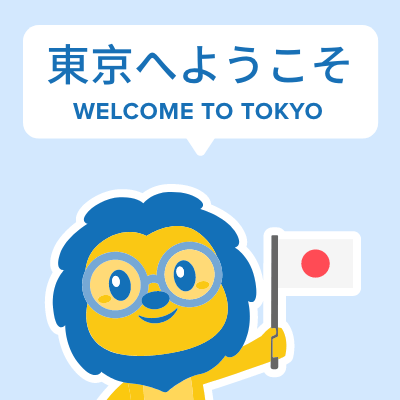Learn Different Ways to Greet a Stranger or a Friend in Chinese and When to Use Each One

Depending on the situation and who you’re talking to, there are several ways to ask ‘How are you?’ in Mandarin Chinese.
Despite what beginner Chinese textbooks tell you, 你好吗? (Nǐ hǎo ma) isn’t commonly used.
In this blog, we’ll guide you through the most common and natural ways to ask “How are you?” in Chinese, for both casual and formal situations.
Ways to Ask How Are You in Chinese || Basic Ways to Ask “How Are You”
Ways to Ask How Are You in Chinese || Asking “How Are You?” in Casual Conversations
Ways to Ask How Are You in Chinese || How to Ask “How Are You?” in Formal Settings
Ways to Ask How Are You in Chinese || How to Respond to “How Are You?”
Ways to Ask How Are You in Chinese || FAQs
Ways to Ask How Are You in Chinese || Basic Ways to Ask “How Are You”
Let’s start with the basics! These are your go-to phrases to ask how someone’s doing in almost any situation:
最近怎么样?
zuì jìn zěn me yàng?
How have you been lately?
This is a great way to ask someone about how things have been going recently. It’s conversational and very helpful to check in on friends or colleagues.
For example:
最近怎么样?
How have you been lately?最近挺忙的
I’ve been busy lately.还好吗?
hái hǎo ma?
Are you okay?
If you think someone might be going through something, this is a caring and gentle way to ask how they’re feeling. It’s like saying, “Are you doing okay?”
For example:
你看起来累了,还好吗?
You look tired, are you okay?Ways to Ask How Are You in Chinese || Asking “How Are You?” in Casual Conversations
When you’re chatting with friends or catching up with someone in a more relaxed way, here are some helpful phrases to start a conversation:

怎么样?
zěn me yàng?
What’s up? / How’s it going?
This is a super casual way to check in with someone. It’s the Chinese equivalent of “What’s up?” and is great for friends or people you know well.
Typically, people respond regarding their health or how they’re making money. These are what people care for in each other.
For example:
你怎么样?
How’s it going?我不错
I’m doing well!吃了吗?
chī le ma?
Have you eaten yet?
This is the typical way to greet almost anyone, typically in Northern China. For a stranger, you add a 您(nín) in front.
It’s a friendly way to show care and valuable in any casual setting.
For example:
你吃了吗?
Have you eaten?吃了,谢谢!
Yes, I have, thanks!
最近忙什么呢?zuì jìn máng shén me ne?
What have you been busy with lately?
This is a casual way to ask someone how they’ve been.
Being busy can positively imply that someone is doing well making money, which is a good thing in Chinese culture!

12 City Names in Chinese 😂 The Funniest Literal Translations
City Names in Chinese 😅 Funny Chinese Translations Ready for some hilarious city names in Chinese direct translations? Chinese to English translations sometimes make little to no sense! Although Chinese is an incredibly logical language to learn we can’t help…
Ways to Ask How Are You in Chinese || How to Ask “How Are You?” in Formal Settings
In formal settings, when speaking to someone with a higher or more senior position, it’s better to use respectful phrases and ask how they’re doing.

A notable difference is you use the respectful you 您 (nín) instead of the regular one.
您最近好吗?
nín zuì jìn hǎo ma?
How have you been recently?
It’s the polite way to ask how someone is doing in formal situations.
When in family gatherings or talking with someone older, it’s a polite gesture to care about their health. For example:
您身体怎么样?
How is your health?身体不错,谢谢
My health is good, thank you.近来可好?
jìn lái kě hǎo?
Have you been well recently?
This phrase is a literal and polite way to check in with someone.
It sounds polite for professional settings or when speaking to someone with respect.
最近在哪高就?
zuì jìn zài nǎ gāo jiù?
Where are you working recently?
This is a formal and polite way to ask about someone’s recent job situation.
The word 高就 (gāo jiù) is a flattering way to describe someone is doing something admirable.
So, it positively implies that the person has excellent career success or is making good money.

8 🗝 Benefits of Learning Mandarin 🤩 How It Improved My Life
The benefits of learning Mandarin are probably greater than you think. Learning Chinese cna take you far in many walks of life, but how exactly?
Ways to Ask How Are You in Chinese || How to Respond to “How Are You?”
Now that we’ve explored various ways to ask “How are you?” in Chinese, it’s equally important to understand how to respond in a culturally appropriate manner.
Let’s look at some polite and common responses to these greetings in different contexts.
挺好的
tǐng hǎo de
Pretty good.
还不错
hái bú cuò
Pretty nice.
These two phrases are the most straightforward and common responses. You can use them in almost every situation, whether with a friend, a colleague, or in a more formal setting.
And to be polite, it’s always respectful to return the greeting. You would typically end your response with a “How about you?”,
您呢?nín ne?
How about you? (formal)
你呢?nǐ ne?
How about you? (informal)
They are the equivalent of “And you?” and show that you care about the other person’s well-being, too.
还好
hái hǎo
Not bad/So-so
还行吧
hái xíng ba
It’s okay.
If you feel okay, this is a good response. It’s not too enthusiastic, but also not negative.
Chinese people prefer to be modest. Sometimes, even when you’re doing great and have something special in your life but don’t want to brag about it, you can also use this phrase.
没什么特别的méi shén me tè bié de
Nothing special
This phrase works well when things are going well and you don’t have much to report.
It’s often used in casual conversations with friends when you want to say nothing new is happening.
最近很忙zuì jìn hěn máng
I’ve been swamped recently.
This is a quick and honest response if you have been busy with work or life. It’s not necessarily a complaint since being busy can imply that work is going well and that you are making good money.
So you can congratulate them with some flattering words on them making money. Chinese people love to hear them no matter what.
谢谢你关心
xiè xiè nǐ guān xīn
Thank you for asking
In formal settings, you can add this at the end of your response to sound more polite and respectful.

For example, when your boss check in with you, you can say:
我很好,谢谢您关心。wǒ hěn hǎo, xiè xiè nín guān xīn
I’m good, thanks for asking.
Now, with all these phrases, you have mastered the art of greeting people in Chinese. Learn to use them in different situations. You’ll be one more step closer to being a local and making more friends in China.
That’s all for this article. Still have a question? Ask away here!
Ways to Ask How Are You in Chinese || FAQ
What’s the easiest way to ask “How are you?” in Chinese?
The easiest way is 你好吗? (nǐ hǎo ma?), which works in almost any situation.
How do I ask “How are you?” in a formal setting?
In formal settings, use 您最近好吗? (nín zuì jìn hǎo ma?) to show respect.
What’s a casual way to ask “How’s it going?” in Chinese?
A casual way to ask is 怎么样? (zěn me yàng?), which is like saying, “What’s up?”
How do I ask someone about their health in Chinese?
You can ask 您身体怎么样? (nín shēn tǐ zěn me yàng?) to ask about someone’s health politely.
Is “Have you eaten?” really a way to ask “How are you?” in Chinese?
Yes, 你吃了吗? (nǐ chī le ma?) is a friendly and culturally common way of asking how someone is.
Want more from LTL?
Want to learn Chinese from the comfort of your own home? Then our 24/7 online Chinese lessons might be the thing for you.
We offer a 7 day free trial to all new online students where you can study Mandarin 24/7.
Come and check it out free of charge and see what you think!
If you wish to hear more from LTL Language School why not join our mailing list?
















 Hi, my name is Manuel! I am from Spain and I am a Student Advisor at LTL. I’m now based at our Seoul School after living 3 years in Taipei.
Hi, my name is Manuel! I am from Spain and I am a Student Advisor at LTL. I’m now based at our Seoul School after living 3 years in Taipei. Hi, my name is Mojca! I am from Slovenia in Europe and I work as a student advisor at our Shanghai school.
Hi, my name is Mojca! I am from Slovenia in Europe and I work as a student advisor at our Shanghai school.




